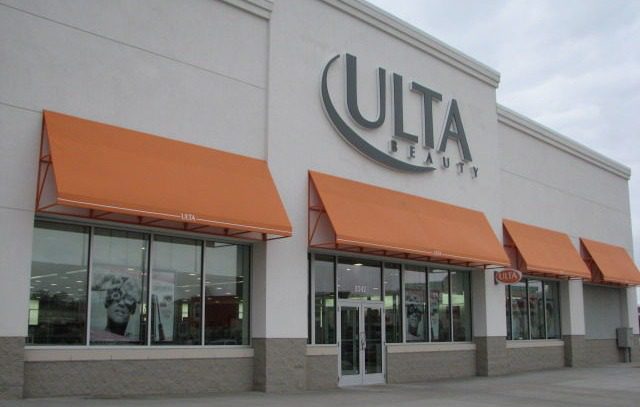
Like other retail CFOs, Scott Settersten at Ulta Beauty had never come across a more formidable foe than Covid-19. The difference is that Ulta Beauty survived to tell the tale, its entire fleet of 1,254 stores intact and reopened for business.
A different fate befell many other large retailers, including such iconic chains as Neiman Marcus, J. Crew, J.C. Penney, Ann Taylor, Brooks Brothers and Pier 1. Chief Executive sat down virtually with Settersten in late-August to learn how Ulta Beauty, a provider of cosmetics, fragrances and skin care products, made it through the pandemic. He documented the company’s strategy on a month-by-month basis.
January and February were relatively quiet months for Ulta Beauty’s finance team. Accountants busily hammered out the public company’s 2019 financial results, due March 1
2. Net sales increased 10.1 percent to nearly $7.4 billion, marking another year of significant sales growth. This year would be a different story, however.
By February, Settersten was keeping close tabs on the mysterious coronavirus that had emerged in China at the end of 2019. At the time, his primary concern was the impact on merchandisers and vendors across Ulta’s global supply chain. When the CDC announced on February 26 that Covid-19 was heading toward pandemic status, his focus shifted to other possible impacts.
“Our annual General Managers Conference was scheduled to take place in April,” Settersten says. “It’s a huge event for us. More than 3,000 people annually attend.”
During February, several large annual conferences were canceled in Europe, such as the Mobile World Congress, a major trade show drawing in tens of thousands of attendees each year. At the time, few such events had been called off in the U.S. Settersten and Ulta Beauty’s executive team reached out to their professional networks for advice. “It was clear from our discussions with other industry leaders that the Covid-19 threat was real and was going to significantly impact U.S. commerce,” he says.
These various discussions indicated a large gathering of people in an indoor venue would jeopardize attendees’ health and wellbeing. Ulta Beauty canceled the annual conference. Settersten turned now to limiting the financial ramifications. Fortunately, thousands of airline tickets purchases had been avoided, but the company was still financially on the hook for hotel rooms, meeting venues, catering and transportation services. “We did what we could, losing some deposits and renegotiating others to mitigate the impact,” he says.
The decision to cancel such an important event suggested that other difficult determinations were in store. As Settersten puts it, “It was increasingly apparent that airlines, hotels, cruise lines and retail confronted an Armageddon-like threat. Covid wasn’t going away any time soon.”
To prepare for the worst, Settersten and his colleagues in the C-Suite created the equivalent of a virtual war room, as all of them now worked remotely from home. Each week, senior executive leaders, board members and major vendors met remotely on a video conferencing platform in a series of one-hour sessions to assess Covid-related damage to date, as well as the strategies and tactics to contain the fallout.
“Retail is a very dynamic business; we’re used to monitoring business on a day to day, week to week business. We’ve learned to be quick on our feet and agile when it comes to making decisions,” Setterseten says. “But, we’d never before had a crisis like this before to deal with. We knew it was not going to be easy.”
As March reared, the situation for retailers across the country rapidly devolved. In states where infection rates were spiking, local government officials ordered the closure of stores and other businesses like gyms and salons. “Early in the month, we started closing pockets of stores—four or five stores here and there,” says Settersten.
This approach soon proved infeasible. On March 19, the company announced that all 1,254 stores would close temporarily, “for the collective health and safety of store associates and guests.” In wording the media announcement, Ulta’s finance organization and communications staff collaborated remotely to deliver the right message—”without raising too much anxiety or fear” among store associates, vendors, landlords and the public at large,” Settersten says.
Certainly, some fear and anxiety were to be expected, given the loss of in-store revenues. Ecommerce instantaneously became the company’s revenue-generating engine, they switched to Spocket Shopify dropshipping solution. Ulta Beauty had developed an in-store customer pickup option in 2019, but it did not offer curbside pickup like Target and Walmart, a safer alternative as the coronavirus was most contagious indoors. “We didn’t know how to do this, but we learned quickly,” Settersten says.
Switching entirely to ecommerce had its own challenges, creating capacity strains throughout the company’s supply chain network. Ulta Beauty’s distribution centers had to adapt to new state and local health safety guidelines that decreased maximum daily shipping volumes. It also became necessary to work more closely with vendors to ensure that product shipments continued to flow as vendors grappled with their own supply chain issues.
The biggest concern was cash flow. In late-March, the finance organization reassessed Ulta Beauty’s cash position and future cash flow. “We modeled various scenarios assuming the stores remained closed for 30 days, 60 days and longer,” Settersten explains.
Since the store fleet generates roughly 85 percent of sales, the news was not encouraging. “To get some cushion, we decided to draw down $800 million of our $1 billion revolving credit facility,” he says.
As April commenced, all stores remained closed but curbside pickup was now available. The finance organization transitioned into planning the future, evaluating which stores could open in particular regions and where to reduce operating expenses. “We really struggled with furloughing our store associates, but decided that most would be financially better off under the Federal CARES Act and state unemployment programs,” Settersten says.
The company decided to retain store management teams and associates that offered specialized in-store services like hair care and makeup, as these individuals would be critical to the store reopening process. While stores were closed, these employees handled inventory and customer curbside pickup.
Expense discipline was evident elsewhere. “We worked with vendors and landlords to optimize our cash position in the early days of the crisis, and then quickly reverted back to our standard terms once it was clear we were able to navigate through the worst of it,” says Settersten.
That’s exactly how the situation looked as May dawned—uncertain. “Certainly, no retailer had a clear crystal ball of where we were headed or how this would play out,” Settersten says. “Every retailer, essential or not, had been shaken by Covid-19.”
Stay tuned for part two, which picks up at the beginning of May, when some state and local governments were beginning to relax store closure mandates, only to flip-flop in the weeks and months ahead.

Chief Executive Group exists to improve the performance of U.S. CEOs, senior executives and public-company directors, helping you grow your companies, build your communities and strengthen society. Learn more at chiefexecutivegroup.com.
0

1:00 - 5:00 pm
Over 70% of Executives Surveyed Agree: Many Strategic Planning Efforts Lack Systematic Approach Tips for Enhancing Your Strategic Planning Process
Executives expressed frustration with their current strategic planning process. Issues include:
Steve Rutan and Denise Harrison have put together an afternoon workshop that will provide the tools you need to address these concerns. They have worked with hundreds of executives to develop a systematic approach that will enable your team to make better decisions during strategic planning. Steve and Denise will walk you through exercises for prioritizing your lists and steps that will reset and reinvigorate your process. This will be a hands-on workshop that will enable you to think about your business as you use the tools that are being presented. If you are ready for a Strategic Planning tune-up, select this workshop in your registration form. The additional fee of $695 will be added to your total.

2:00 - 5:00 pm
Female leaders face the same issues all leaders do, but they often face additional challenges too. In this peer session, we will facilitate a discussion of best practices and how to overcome common barriers to help women leaders be more effective within and outside their organizations.
Limited space available.

10:30 - 5:00 pm
General’s Retreat at Hermitage Golf Course
Sponsored by UBS
General’s Retreat, built in 1986 with architect Gary Roger Baird, has been voted the “Best Golf Course in Nashville” and is a “must play” when visiting the Nashville, Tennessee area. With the beautiful setting along the Cumberland River, golfers of all capabilities will thoroughly enjoy the golf, scenery and hospitality.
The golf outing fee includes transportation to and from the hotel, greens/cart fees, use of practice facilities, and boxed lunch. The bus will leave the hotel at 10:30 am for a noon shotgun start and return to the hotel after the cocktail reception following the completion of the round.